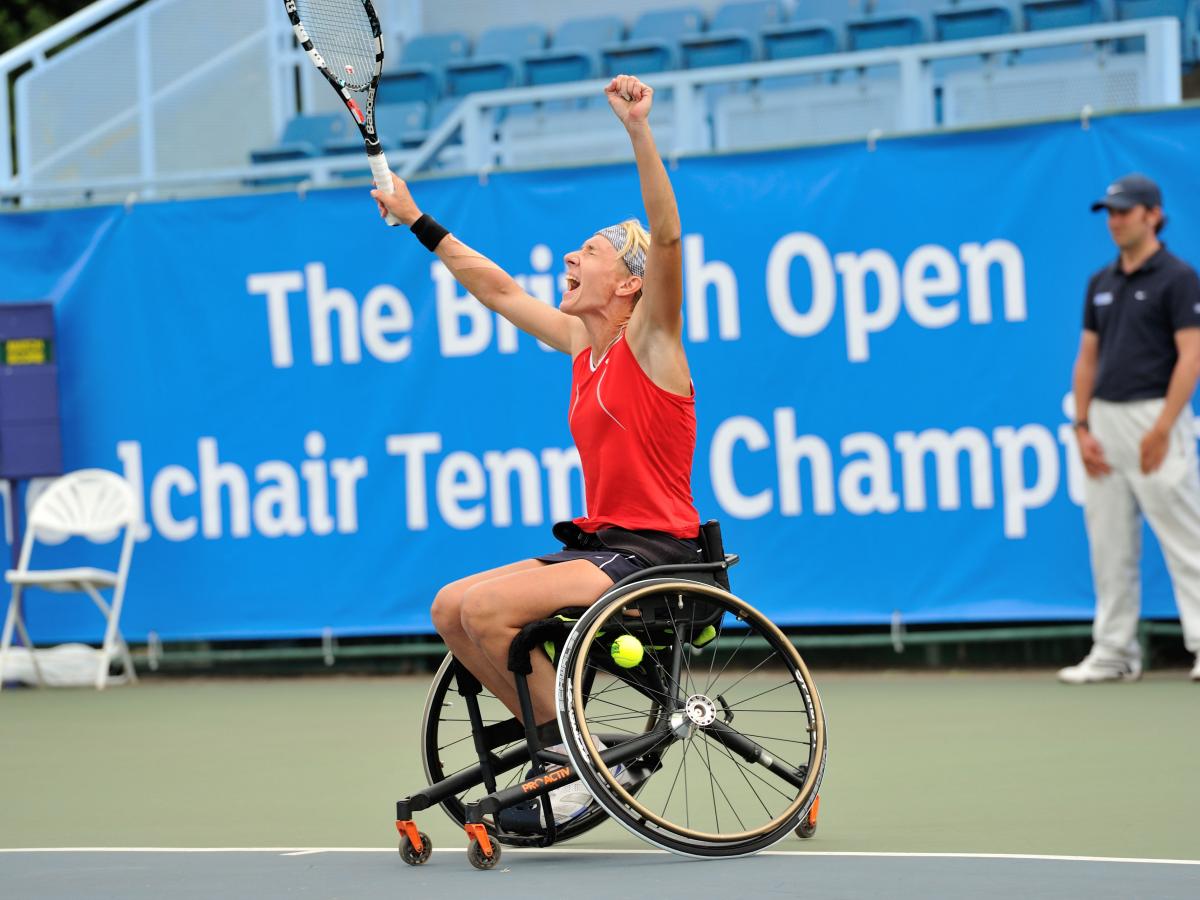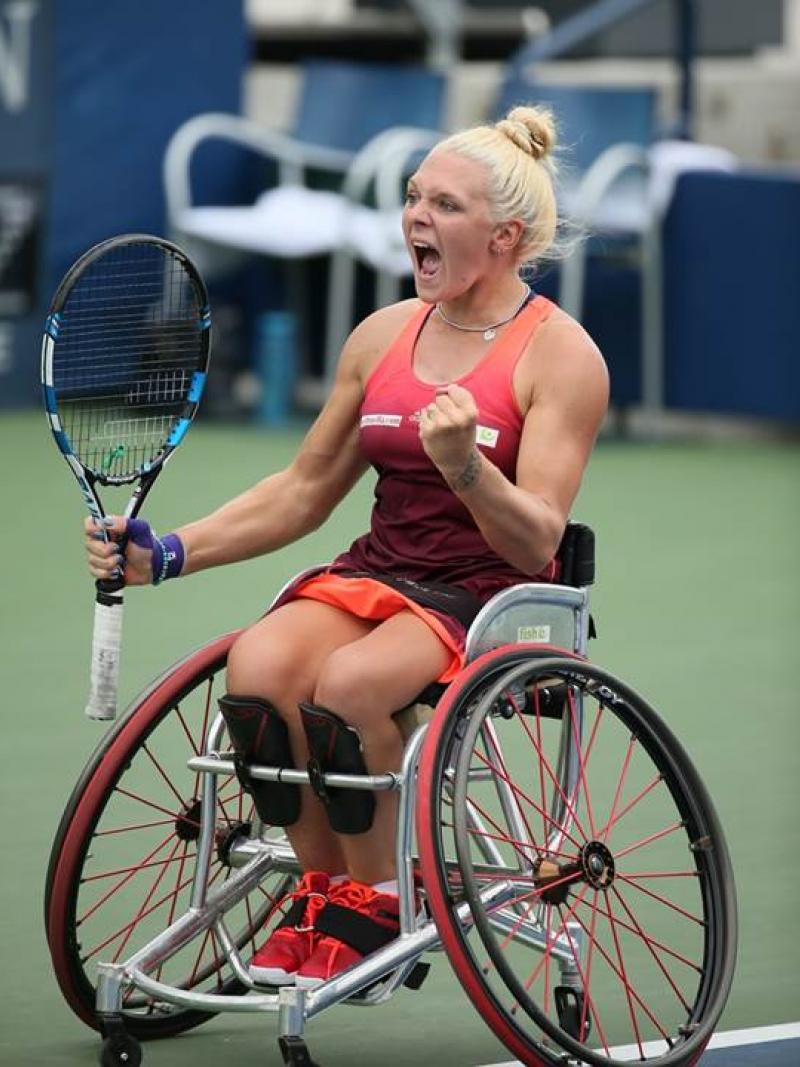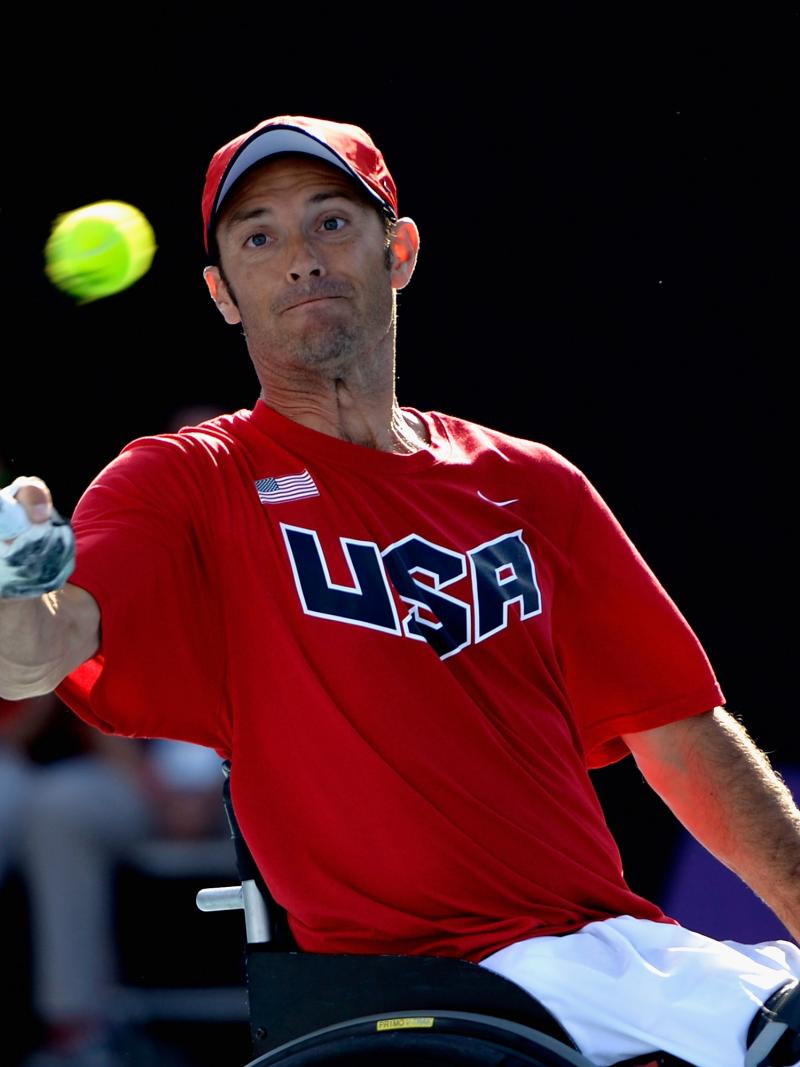Ellerbrock works around financial challenges
Germany’s top wheelchair tennis player has juggled teaching and her athletic career but has found it harder with Rio 2016 nearing. 03 Oct 2015
Germany's Sabine Ellerbrock is overjoyed after defeating the Netherlands' Aniek van Koot for the women's singles title at the British Open Wheelchair Tennis Championships.
“It has been a hard time due to the financial pressure I had to deal with every day. I had to give up a lot the past years to be able to live my dream of playing wheelchair tennis.”
Germany’s top wheelchair tennis player Sabine Ellerbrock has contemplated leaving her current job to focus on medalling at the Rio 2016 Paralympics.
The 39-year-old teaches math, biology and sports to students between 11 and 18 years old. She has tried juggling that with her athletic career, but has found it more difficult to do so with the Games under a year away.
“For the past year I’ve tried to find a solution which makes it easier for me to practice more and to play the tournaments I need to play,” Ellerbrock said. “I could take unpaid leave like I did for London 2012, but I hope that I can work for the army for a year, who have a special programme for athletes.”
Ellerbrock is waiting to hear from the German Ministry. If that does not work out, she will try to take unpaid leave from February 2016 to play in tournaments leading up to Rio 2016.
“Without a job I am not able to cover all the costs,” she said. “…The support for wheelchair tennis in Germany is not enough.
“It has been a hard time due to the financial pressure I had to deal with every day. I had to give up a lot the past years to be able to live my dream of playing wheelchair tennis.”
Ellerbrock’s only Paralympic appearance was at London 2012. She finished fourth in the singles division after falling to the Netherlands’ runner-up Aniek Van Koot in the semi-final.
Ellerbrock had a chance to reach the podium but lost to another Dutch player Jiske Griffioen 6-2 7-6(6) in the bronze medal match. Ellerbrock missed another shot at medalling after her and her playing partner Katherina Kruger lost in the doubles quarterfinals to the British pairing of Jordanne Whiley and Lucy Shuker.
Currently, Ellerbrock is ranked No. 5 in the world in women’s singles and has competed in all Grand Slams in 2015.
"My goal is to win a medal in Rio and for that I will work as hard as I can,” Ellerbrock said. “It would be huge to win gold. I guess everyone is dreaming of it and so do I.”
I hope that I stay healthy and that I am able to take part [in Rio 2016]. London 2012 was great and I expect another amazing atmosphere in Rio.
“To take part at Paralympic games is a very special experience,” Ellerbrock said. “Even though I did not win a medal at London 2012 it was phenomenal to be there and to meet all the other athletes - an experience you never forget.”
In the last few years, wheelchair tennis and other Paralympic sports have grown tremendously, and Rio is set to build from the London Games, where a record-breaking 2.7 million tickets were sold. Since 2012, Ellerbrock has noticed the increase in competitiveness in her sport and wants to continue being a part of it, no matter what the cost may be.
“There are more players on tour now and the sport has become more and more professional,” she said.
On whether she will drop teaching to continue on her road to Rio, Ellerbrock said: “I don't have a real choice.I need a job, if there is no better support for my sports in my country. But if there is no way to combine teaching and tennis, I would always try to find another solution even if that would be a difficult way. I love this sport, it helps me to deal with my disability and I made so many experiences which were worth all the tough times I had to go through.
“And at least I hope that I can be able to increase the awareness and attention for wheelchair tennis in Germany to make it easier for the upcoming generation.”

 Facebook
Facebook
 Instagram
Instagram
 Twitter
Twitter
 Youtube
Youtube
 TikTok
TikTok
 Newsletter Subscribe
Newsletter Subscribe


